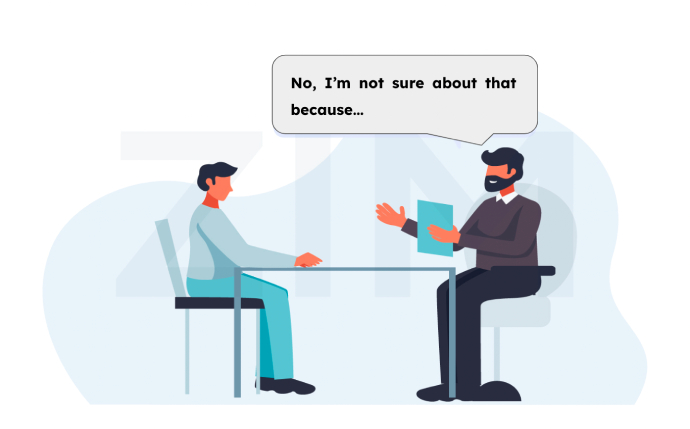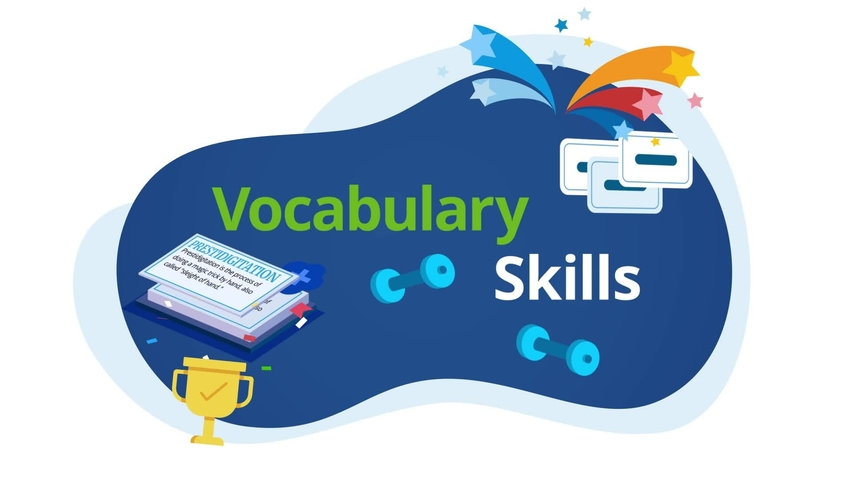Master IELTS Speaking Vocabulary: Key Words & Strategies
A robust vocabulary is the cornerstone of a high band score in the IELTS Speaking test. It is not just about knowing “big words”; it is about using the right words at the right time. Demonstrating a diverse range of IELTS speaking vocabulary proves your fluency, coherence, and lexical resource—three critical criteria examiners look for. At IELTS Test Pro, we understand that memorizing lists can be tedious. This guide explores effective strategies to internalize vocabulary naturally and boost your confidence for the exam.
I. Understanding IELTS Speaking Test Structure
The IELTS Speaking test is a dynamic interaction. To succeed, candidates must adapt their IELTS speaking vocabulary to suit the increasing complexity of each part.

Part 1: Introduction and Interview
This section feels like a “warm-up,” focusing on familiar topics like your home, studies, or hobbies.
- Vocabulary Focus: Everyday language, describing habits, and personal preferences.
- Tip: While the topics are simple, avoid one-word answers. Use this chance to show natural collocations.
>> Read more: IELTS Speaking Part 1 – Overview, Topics and Tips
Part 2: Cue Card (The Long Turn)
You have one minute to prepare and up to two minutes to speak. This requires sustained speech and descriptive language.
- Vocabulary Focus: Adjectives for description, narrative linkers, and topic-specific terminology.
- Insight: IELTS Test Pro suggests grouping your vocabulary by common themes (e.g., Travel, People, Objects) to react quickly during the 1-minute prep. >> Read more: IELTS Speaking Part 2 – Overview, Topics and Tips
Part 3: Two-Way Discussion
This is the most challenging part, dealing with abstract ideas and societal issues.
- Vocabulary Focus: Academic words, speculation, expressing opinions, and agreeing/disagreeing.
- >> Read more: IELTS Speaking Part 3 – Overview, Topics and Tips
II. Why Is Vocabulary Important in IELTS Speaking?
Enhancing your IELTS speaking vocabulary does more than just impress the examiner; it fundamentally changes how you perform.

1. Get higher scores in lexical resource
One of the four scoring criteria in the IELTS Speaking test, lexical resource, covers 25% of your overall score. IELTS speaking word can contribute to good phrases for IELTS Speaking.
Example:
- Basic: I am not a student anymore and I work now.
- Advanced: Actually, I graduated a few years ago and now I’m in full-time employment.
2. Leave a positive impression
In Part 1, IELTS speaking vocabulary provides well-structured and naturally flowing answers in this section makes your responses sound like a natural conversation and leaves a good impression on the examiner.
Example:
- Question: Do you enjoy traveling?
- Strong Response: Yes, I’m passionate about exploring new destinations. Traveling enables me to broaden my horizons and to experience diverse cultures.
3. Make better expression of Ideas
Using a rich and diverse IELTS Speaking vocabulary as well as phrases for IELTS speaking helps you structure your answer effectively, ensuring clarity and coherence while discussing the topic.
Example:
- Basic: I had a great trip.
- Advanced: My recent journey was an eye-opening experience that exposed me to breathtaking landscapes and diverse cultures.
4. Improve fluency and coherence
Having a strong grasp of topic-specific IELTS Speaking vocabulary allows you to express yourself smoothly without frequent pauses or hesitations. This leads to a more natural and confident delivery of your responses.
Example:
- Basic: I think technology is important because it helps people.
- Advanced: In my opinion, technology plays a crucial role in modern society as it facilitates communication, enhances productivity, and improves overall quality of life.
5. Handle unexpected questions in Part 3
Part 3 questions often delve into abstract concepts, requiring you to discuss societal trends, philosophical ideas, or future possibilities, which sometimes could be unfamiliar. If you don’t know a specific word, having an alternative IELTS speaking word enables you to paraphrase and explain your meaning.
Example:
- If you forget the term “renewable energy”: I mean energy sources that can naturally replenish themselves, like solar or wind power.
6. Avoid repetition
When you have a wide IELTS Speaking vocabulary, you can more easily expand on your ideas with phrases for IELTS Speaking and provide detailed explanations. This reduces the need to repeat yourself, as you can explore different aspects of the topic.
Example:
- Question: Do you think technology has improved communication?
- Basic Answer: Yes, I think technology is very good for communication. It makes communication faster. You can talk to people all over the world.
- Advanced Answer: Absolutely, I believe technology has significantly revolutionized communication. It has accelerated the transmission of information, making it almost instantaneous. Moreover, it fosters worldwide connectivity, allowing individuals to interact with others beyond geographical boundaries.
If your aim is achieving Band 7 or higher, a comprehensive IELTS speaking vocabulary is essential in conveying your thoughts and demonstrating a high level of language proficiency throughout the test.
III. Strategies to Learn IELTS Speaking Vocabulary
How do you move words from your notebook to your active memory? Here are the strategies recommended by our experts at IELTS Test Pro.

1. Learn IELTS Speaking Vocabulary by Topics
Instead of just memorizing random words for the IELTS speaking test, it’s better if you try learning IELTS speaking vocabulary grouped by topic like education or technology. This will make it easier to express yourself clearly and likely get you a better score.
- Music: melody, rhythm, genre, harmony, instrumental
- Hobby: pastime, leisure, recreational, creative pursuit
- Family: generation, upbringing, nuclear family, extended family
- Education: curriculum, extracurricular, academic achievement, lifelong learning
- Work: job satisfaction, work-life balance, career progression, professional development
- Environment: climate change, renewable energy, sustainability, conservation
- Health: mental health, physical well-being, preventive care, healthy lifestyle
- Technology: innovation, digital literacy, cybersecurity, artificial intelligence
- Culture: cultural heritage, traditions, multiculturalism, globalization
2. Take on IELTS Speaking Vocabulary by Parts
To better the process of acquiring phrases for IELTS speaking, you can try breaking it down into parts.
- Part 1: Everyday vocabulary for personal topics.
- Part 2: Topic-specific vocabulary to develop structured responses.
- Part 3: Advanced vocabulary for discussing abstract and complex topics
3. Expand with Synonyms and Paraphrasing
Using different ways to say the same thing with different IELTS Speaking vocabulary will make you sound more fluent and prevent you from repeating yourself, which ultimately makes your speech more profound and natural.
Example:
- Basic: The weather is good.
- Advanced: The weather is pleasant and refreshing.
4. Apply Collocations, Idioms, and Phrasal Verbs
The “Lexical Resource” criterion assesses your ability to use a range of IELTS Speaking word accurately and appropriately. Incorporating collocations, idioms, and phrasal verbs makes your speech sound less like memorized phrases and more like fluent, spontaneous communication, which is highly valued by examiners.
5. Create a Vocabulary Journal
The act of writing down IELTS Speaking word and phrases, along with their definitions, examples, and synonyms, can strengthen your memorization. By studying vocabulary in context, you also know how to use words and phrases naturally and fluently in spoken English.
6. Use Flashcards
Flashcards are ideal for spaced repetition, a learning technique that involves reviewing information at increasing intervals. Furthermore, they are small and portable, allowing you to learn IELTS speaking vocabulary anytime and anywhere.
7. Engage with Authentic Materials
Authentic materials expose you to IELTS Speaking vocabulary in IELTS Test Pro is commonly used in real-life situations. Staying informed about current events through these resources can help you discuss relevant topics confidently and provide informed opinions in the speaking test, especially in Part 3.
8. Practice with Past IELTS Questions
A very important step in preparing for the IELTS speaking test is to regularly practice with IELTS Speaking questions in IELTS Test Pro, which can familiarize you with different types of questions in each part of the test. This, in addition, helps you understand how words and phrases are used in responses, rather than just memorizing definitions.
9. Conclusion
Mastering IELTS Speaking vocabulary is essential for achieving a high band score in the Speaking test. Expanding your word bank through topic-based learning, synonyms, collocations, and real-world exposure will improve fluency, coherence, and confidence.
For a higher score, take Online IELTS Speaking Practice Tests with IELTS Test Pro now and see how well you can use the vocabulary you’ve been learning in a real exam.